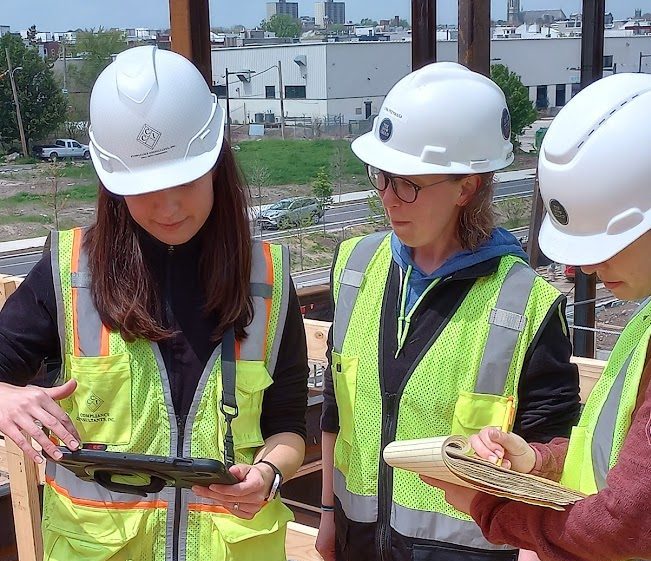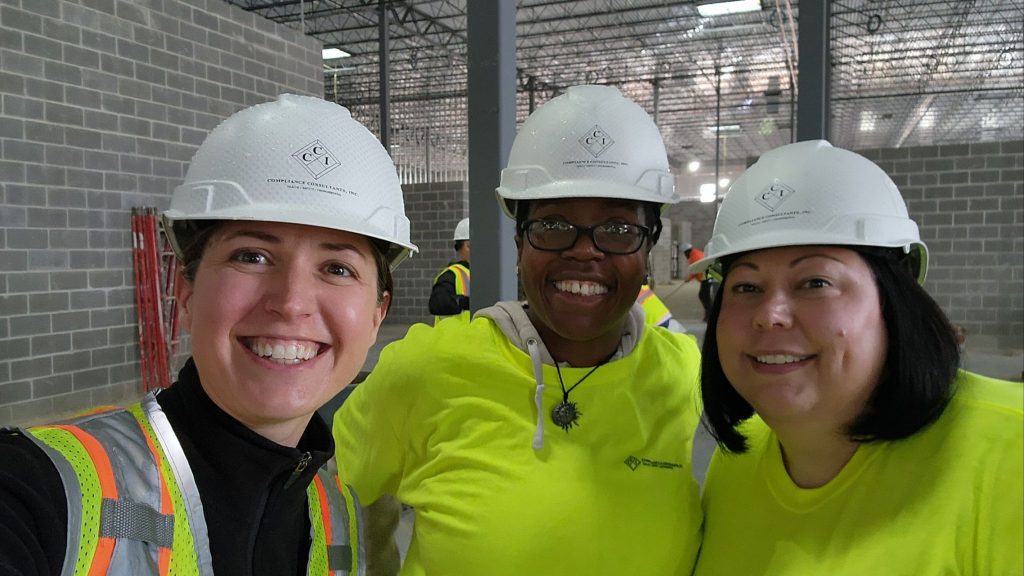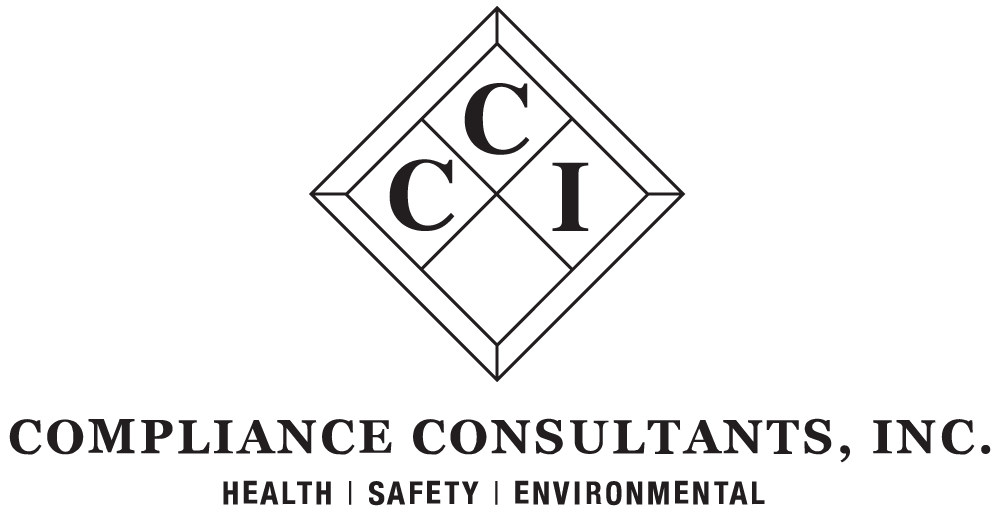
Women In Construction – Hiring Tips and Insights
Compliance Consultants, Inc. honors all women in the construction industry. Women in construction are making huge strides in industry, but there is still work to be done. Though more women are joining the construction industry than ever before, and opportunities for women in construction are on the rise, they still make up a very small portion of the workforce.
As of August 2022, the percentage of women in construction reached an all-time high of 14% of the entire construction industry. Further, a November 2022 analysis by The Washington Post found that the number of women employed in the construction industry has been on the rise since 2016, increasing from 12.5% in August 2016, and spiking during the pandemic in April 2020 to 13.5%. That year, one in every 10 construction workers was a woman, accounting for 1.2 million employees, according to the U.S. Bureau of Labor Statistics.
Opportunities for Women in a Changing Industry
The current labor shortage in the industry presents an opportunity to hire even more women in construction jobs. Although there are obstacles for women entering construction, diversity is a proven asset in driving profitability, and a key component in solving the construction industry’s labor shortage.
With more and more groundbreaking women in construction chipping away at gender norms and leveling the playing field, the industry is taking bigger steps at becoming more diverse and inclusive.
Nationally recognized groups like the National Association of Women in Construction (NAWIC) and Women Construction Owners & Executives USA provide mentorship, marketing and networking opportunities to help women who are new to the construction industry.
Tips on How to Recruit More Women
To increase recruitment and improve retention, companies need to acknowledge and remove gender bias from their work culture, develop training programs and local mentorship groups specific to women’s needs, include more women in the hiring process and encourage women to become role models for other women.
Schools and educational programs need to highlight the value of construction jobs for women and young girls so that they can see the industry as a viable career path.
Women in Construction Week
The focus of Women in Construction (WIC) Week (March 3 – 9, 2024) is to highlight women as a viable component of the construction industry.
This year’s theme, ‘Keys to the Future’, celebrates the strength and knowledge of women and the vital role they play in shaping the future of the construction industry.
WIC Week also provides an occasion for NAWIC’s thousands of members across the country to raise awareness of the opportunities available for women in the construction industry and to emphasize the growing role of women in the industry. It is also a time for local chapters to give back to their communities.
Compliance Consultants, Inc. is Proud Women-Owned Business
Compliance Consultants, Inc.’s President and CEO, Terri Collins, is a great example of a trailblazing woman in construction.
Terri Collins assumed the position of President and CEO in 2017. With this management change, CCI went on to obtain its national certification as a Women’s Business Enterprise (WBE) and Woman-Owned Small Business (WOSB).

Learn about Compliance Consultant’s, Inc. President and CEO, Terri Collins, and how she got started in the Safety Industry. We celebrate all the Women in Construction.
This is a fun read!
Resources:
Disclaimer: The information contained in this article is intended for general information purposes only and is based on information available as of the initial date of publication. No representation is made that the information or references are complete or remain current. This article is not a substitute for review of current applicable government regulations, industry standards, or other standards specific to your business and/or activities and should not be construed as legal advice or opinion. Readers with specific questions should refer to the applicable standards or consult with an attorney.



